Lidl’s High Court victory over Tesco this week shows the danger of adopting someone else’s design, even in a very subtle way.
By using a symbol similar to Lidl’s yellow circle branding, Tesco achieved a “subtle but insidious transfer of image” to its Clubcard Prices scheme, according to the ruling handed down this week.
The judge said there was “no specific intention” on Tesco’s part to “free-ride on Lidl’s reputation”, but that Tesco employees appreciated the design was likely to cause confusion with Lidl and the supermarket “went ahead with the Clubcard Prices promotion in any event”.
It’s undoubtedly a blow for Tesco, which could be ordered to stop using the logo. This would result in a “costly redesign of the visual identity for its flagship customer loyalty and reward programme”, notes Mark Caddle, partner and trademark attorney at European intellectual property firm Withers & Rogers.
What’s more, its annual results last week showed 79% of Tesco’s UK shoppers were signed up to Clubcard following a 10% boost to the number of promotions. That poses another problem, in that the yellow circle has become familiar to all those shoppers as a symbol of Clubcard Prices. How long will it take a new symbol to trigger the same instant recognition in the minds of busy and distracted customers?
The judge also found the transfer of image granted by the use of the yellow circle “will have assisted Tesco to increase the attraction of their prices”. If that’s so, to what extent will a new logo have the same effect?
Perhaps unsurprisingly, Tesco plans to appeal. A spokeswoman said it was “surprised and disappointed by the decision”, and the Clubcard Prices scheme “will continue to run in exactly the same way”. She added: “The judge’s ruling concluded there was no deliberate intent on Tesco’s part to copy Lidl’s trademark.”
The planned appeal is not the only reason why Lidl might constrain its celebrations.
Significantly, the judge held Tesco had “taken unfair advantage” of Lidl’s reputation by using the logo – a finding that could be of concern to the discounters.
Alex Borthwick, of counsel at Powell Gilbert, notes ‘unfair advantage’ is a “developing area of trademark law”. And one that discounters are no stranger to. Indeed, in an ongoing High Court claim launched last November, Thatchers Cider argued Aldi had taken “unfair advantage” of its brand reputation with a copycat design.
Unlike some other grounds for claims in intellectual property disputes, establishing unfair advantage does not require proving that one design causes confusion with another. There is “no need for such complicated evidence gathering exercises for unfair advantage”, says Stobbs head of litigation Geoff Steward.
Indeed, the Lidl v Tesco case illustrates there is no need, with the evidence for unfair advantage and customer confusion dealt with separately in the ruling, Steward adds.
Thatchers’ unfair advantage argument also formed the “interesting part” of the cider brand’s claim, meaning it potentially “could succeed” against Aldi, Steward told The Grocer when the case papers emerged.
Given its similar propensity to use design cues to signpost alternatives to market-leading brands, Lidl might take note.
“Lidl are themselves well known for pushing the boundaries of what constitutes legitimate trade and what constitutes trademark infringement,” says Forbes solicitor Daniel Fletcher.
“It will be interesting to see future cases that involve discount retailers where the shoe is on the other foot, as Lidl’s success on its unfair advantage claim may be to its detriment in proceedings concerning its own products.”
Borthwick also believes “subject to any appeal, it is possible that Lidl and other budget supermarkets may see the decision cited against them in future trademark cases concerning copycat products”.
Writing on LinkedIn yesterday, Steward went so far as to say Lidl had “scored what appears to be an own goal in the fight against lookalikes”.
Speaking to The Grocer, Steward noted the case outcome also “confirms colour and shape are more important than word and brand name”. That’s important, because having a different name on the packaging has often been relied on by the discounters as a defence.
It’s another reason why “ironically it strikes a blow against lookalikes”, says Steward.
Tesco may be licking its wounds over the ruling, but Lidl should mind the double edge on its sword.







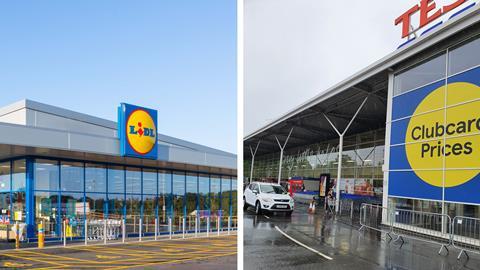
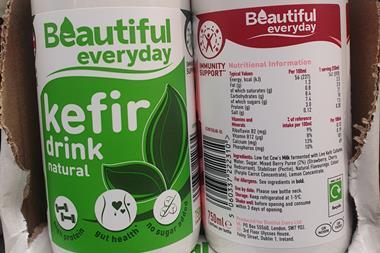
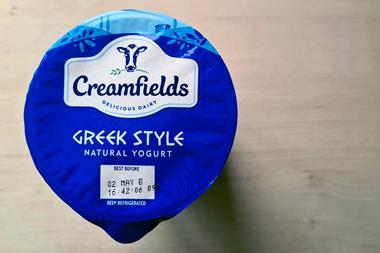








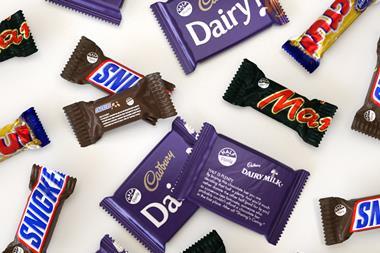
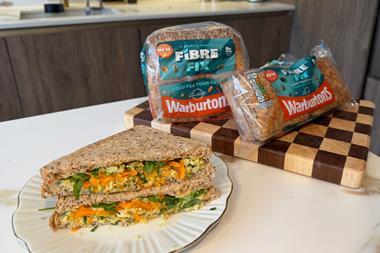
No comments yet